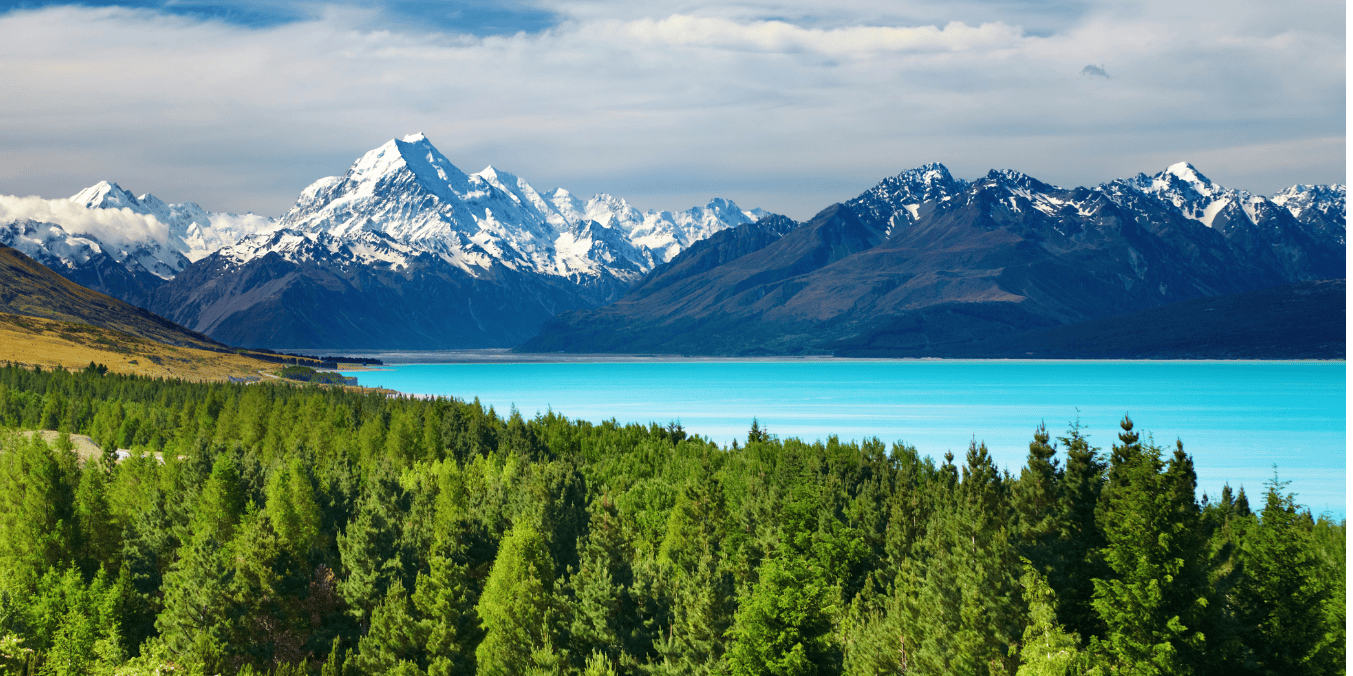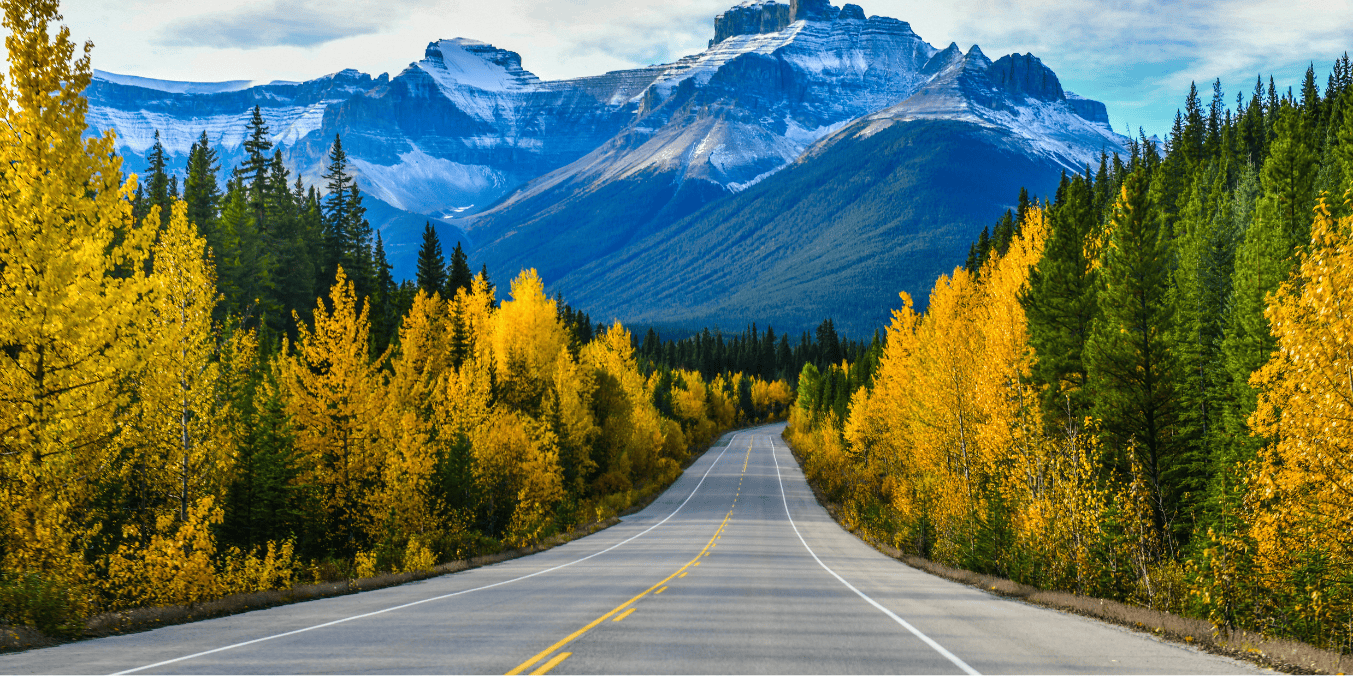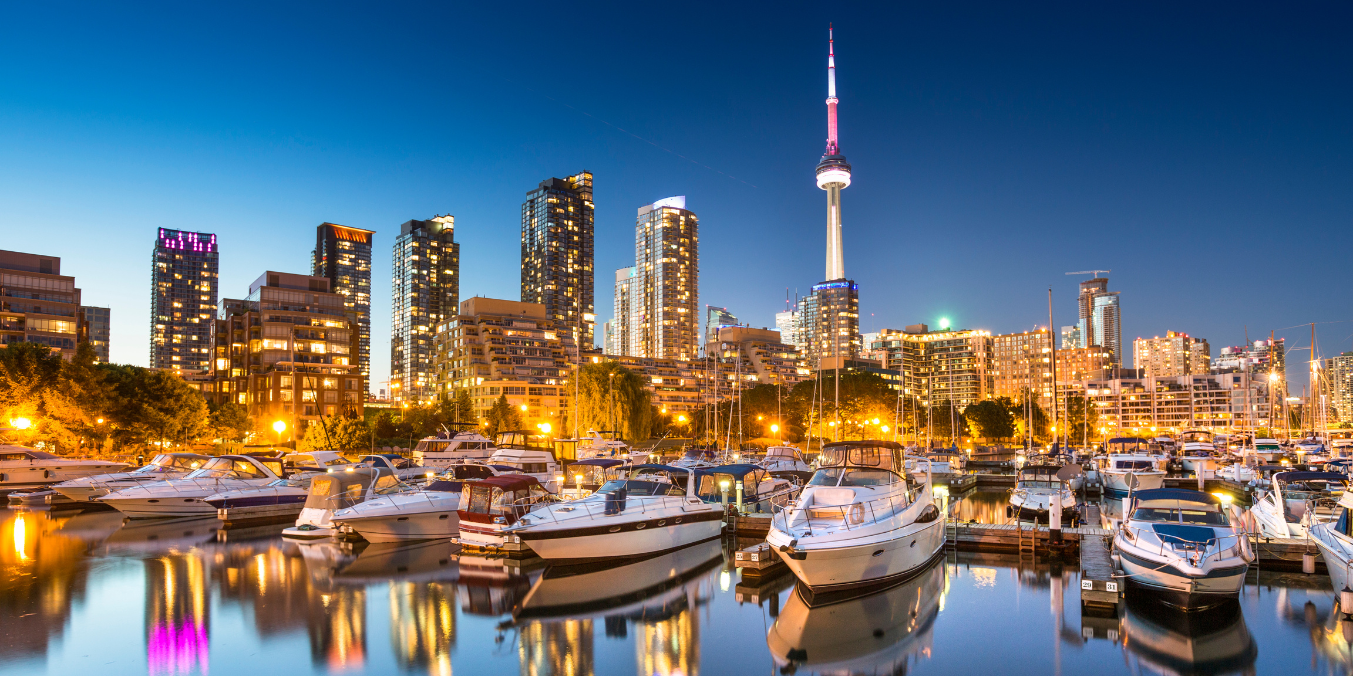When considering a move to a new country, many people debate life in Canada vs New Zealand. Both countries are known for their stunning landscapes, welcoming communities, and high standards of living, making them attractive destinations for expats. However, there are key differences between the two, such as the cost of living, climate, job opportunities, lifestyle, and immigration processes. This in-depth guide explores each aspect of life in Canada vs New Zealand, helping you make an informed decision on which country may be the best fit for your needs.
Immigration news directly into your inbox
Overview of Canada and New Zealand
This overview highlights the key characteristics of each country, providing a clearer picture of what life might be like in Canada compared to New Zealand.
Canada: A Vast and Diverse Nation
Canada is the second-largest country in the world, home to over 38 million people. It offers a wide range of natural landscapes, from the Rocky Mountains in the west to the Atlantic coast in the east. The country’s multicultural cities like Toronto, Vancouver, and Montreal attract a diverse population, providing a blend of modern amenities and rich cultural experiences. Canada is known for its strong economy, driven by industries such as technology, natural resources, and manufacturing.
New Zealand: A Small but Scenic Paradise
With a population of around 5 million, New Zealand is renowned for its spectacular natural beauty, from the beaches and rainforests of the North Island to the mountains and fjords of the South Island. The country offers a relaxed, outdoor-oriented lifestyle, with a focus on environmental sustainability. New Zealand’s economy relies on agriculture, tourism, and technology, providing opportunities for those looking to work in these sectors. It’s an appealing destination for expats seeking a slower-paced life with stunning natural surroundings.
Cultural and Social Atmosphere
Canada and New Zealand each offer distinct cultural experiences. Canada is celebrated for its multiculturalism and diverse urban centers, welcoming people from all backgrounds. New Zealand, meanwhile, blends Māori heritage with European influences, fostering a relaxed, community-focused lifestyle. Both countries are known for their friendly, inclusive attitudes, but their cultural roots provide unique experiences for newcomers.
Cultural Diversity and Multiculturalism
- Canada: Celebrated for its multiculturalism, Canada is a melting pot of cultures. Its cities are home to large immigrant communities, with significant populations from Asia, Europe, Africa, and the Caribbean. This diversity is reflected in cultural festivals, international cuisine, and a welcoming attitude towards newcomers. Canadian society places high value on inclusivity and respect for different cultures.
- New Zealand: While less diverse than Canada, New Zealand’s culture is rich and multifaceted. It is shaped by a blend of Māori traditions and European influences, with a growing presence of Asian and Pacific Islander communities. Māori culture is deeply integrated into New Zealand’s national identity, with Māori language and customs celebrated alongside modern lifestyles.
Social Values and Lifestyle
- Canada: Known for its politeness and friendliness, Canadians are community-oriented and value social cohesion. There is a strong emphasis on politeness, equality, and social justice. This makes Canada an attractive choice for those seeking a socially progressive environment.
- New Zealand: Known for its relaxed, informal atmosphere, New Zealanders—or Kiwis—are friendly and approachable. The social fabric is built on egalitarianism and a love for the outdoors. New Zealand’s lifestyle is ideal for those who prioritize a healthy work-life balance, with plenty of time for outdoor activities.

Cost of Living Comparison
One of the most significant factors to consider when evaluating life in Canada vs New Zealand is the cost of living. The costs of housing, groceries, transportation, and utilities vary between the two countries, influencing the overall affordability of each location.
| Aspect | Canada | New Zealand |
|---|---|---|
| Housing (Rent) | $2,000+ CAD/month (1-bedroom in city center) | $2,500+ NZD/month (1-bedroom in Auckland) |
| Housing (Home Prices) | High in Toronto/Vancouver, lower in smaller cities | $1 million+ NZD in Auckland, lower in rural areas |
| Groceries | $300 - $400 CAD/month | $400 - $500 NZD/month |
| Dining Out | $70 CAD (mid-range meal for two) | $80 - $100 NZD (mid-range meal for two) |
| Public Transportation | $100 - $150 CAD/month (monthly pass) | ~$200 NZD/month (monthly pass in Auckland) |
| Utilities | $150 - $200 CAD/month | $200 - $250 NZD/month |
Housing Costs
- Canada: Housing costs in Canada vary widely depending on the region. Toronto, Vancouver, and Montreal have some of the highest housing prices, with rents for a one-bedroom apartment in downtown areas often exceeding $2,000 CAD per month. Homeownership in these cities can be expensive, but smaller towns and rural regions offer more affordable options.
- New Zealand: Housing in New Zealand is particularly costly in Auckland, the country’s largest city, where home prices frequently surpass $1 million NZD. Renting in Auckland is also expensive, with monthly rent for a one-bedroom apartment around $2,500 NZD. However, more affordable options can be found in smaller cities like Wellington and Christchurch, or in rural areas.
Groceries and Dining Out
- Canada: Groceries in Canada are generally affordable, though prices can rise in remote areas due to transportation costs. On average, a single person can expect to spend around $300 to $400 CAD per month on groceries. Dining out can range from budget-friendly options to high-end restaurants, with a mid-range meal for two costing about $70 CAD.
- New Zealand: Groceries in New Zealand tend to be more expensive, with an average monthly cost of $400 to $500 NZD for a single person. This is partly due to New Zealand’s geographic isolation, which necessitates the import of some goods. Dining out is also relatively costly, with a mid-range meal for two ranging from $80 to $100 NZD.
Utilities and Transportation
- Canada: Utility costs, including electricity, heating, and internet, typically range from $150 to $200 CAD per month for a small apartment. Public transportation is available in major cities, with monthly transit passes costing between $100 and $150 CAD.
- New Zealand: Utility costs are slightly higher, ranging from $200 to $250 NZD per month. While public transportation is available in cities like Auckland and Wellington, it is less extensive than in Canada. A monthly public transport pass in Auckland costs around $200 NZD, and many residents rely on cars for travel, especially outside of urban areas.
Climate and Geography: Comparing Canada and New Zealand
Climate and geography are major factors that influence life in Canada vs New Zealand. Both countries offer beautiful landscapes, but their climates differ significantly.
Climate in Canada
- Canada experiences a wide range of climates due to its vast size. Winters can be harsh, especially in cities like Toronto, Calgary, and Montreal, where temperatures often drop below freezing with significant snowfall. Summers are warm and pleasant, with temperatures ranging from 20°C to 30°C (68°F to 86°F).
- British Columbia, especially Vancouver, enjoys a milder climate with less severe winters and cooler, rainy summers. This region is ideal for those who prefer a more temperate environment. Canada’s climate supports a variety of outdoor activities, from skiing in the Rockies to kayaking along the Atlantic coast.
Climate in New Zealand
- New Zealand enjoys a milder, maritime climate, with warm summers and mild winters. Average summer temperatures range from 20°C to 30°C (68°F to 86°F), while winter temperatures rarely fall below 0°C (32°F) in most areas.
- The North Island is generally warmer and more humid, while the South Island experiences cooler temperatures and more seasonal variation, including snowfall in alpine areas. New Zealand’s climate makes it ideal for year-round outdoor activities like hiking, surfing, and skiing.
Geography and Natural Beauty
- Canada is famous for its vast and varied geography, including mountains, prairies, forests, and thousands of lakes. The Rocky Mountains and national parks like Banff and Jasper are popular destinations for nature lovers and adventure seekers.
- New Zealand, though smaller, is known for its stunning and diverse landscapes, from golden beaches to the Southern Alps. The country’s compact size makes it easy to explore different types of scenery in a short time, offering everything from glaciers to volcanic lakes.

Job Opportunities and Economic Conditions
Job prospects are a critical consideration for those comparing life in Canada vs New Zealand. Both countries have robust economies, but the types of opportunities available differ.
Job Opportunities in Canada
Canada’s economy is diversified, with major sectors including technology, healthcare, natural resources, and finance. The unemployment rate is generally low, and the demand for skilled workers is high, particularly in fields like engineering, IT, healthcare, and construction. The Express Entry immigration system prioritizes skilled professionals, making it easier for qualified individuals to obtain work visas and permanent residency.
Canada’s largest economic hubs, such as Toronto, Vancouver, and Calgary, offer a wealth of job opportunities. The country also places a high value on work-life balance, with a standard 40-hour workweek and generous paid leave provisions.
Job Opportunities in New Zealand
New Zealand has a smaller economy but offers ample job opportunities in agriculture, tourism, healthcare, and technology. The Skilled Migrant Category (SMC) is designed to attract professionals in high-demand areas such as nursing, IT, engineering, and trades. New Zealand’s unemployment rate is low, and cities like Auckland, Wellington, and Christchurch are key employment centers.
New Zealand is known for its relaxed approach to work, with a standard 40-hour workweek and a focus on maintaining a healthy work-life balance. Employees in New Zealand enjoy four weeks of annual leave, and the country’s outdoor lifestyle encourages people to make the most of their free time.
Education and Healthcare Systems
In comparing life in Canada vs New Zealand, education and healthcare are key aspects. Canada offers free public education, top universities, and a universal healthcare system covering most needs. Meanwhile, New Zealand provides free schooling, globally recognized universities, and a public healthcare system with accessible care, offering a balanced approach to education and health.
Education: Canada vs New Zealand
Both countries have high-quality education systems, but there are differences in accessibility and cost.
| Aspect | Canada | New Zealand |
|---|---|---|
| Public Education (K-12) | Free for residents, high quality | Free for residents, supportive learning environment |
| Top Universities | University of Toronto, McGill University | University of Auckland, University of Otago |
| Tuition for International Students | $15,000 - $30,000 CAD/year | $20,000 - $35,000 NZD/year |
- Canada: Offers world-class public education, with schooling being compulsory until age 16 or 18, depending on the province. Canadian universities are globally recognized, and cities like Toronto and Montreal are known for their research institutions.
- New Zealand: Known for a supportive and holistic education system, with a focus on outdoor learning. New Zealand’s universities are also well-regarded, attracting international students due to work-study opportunities and pathways to residency.
Healthcare: Canada vs New Zealand
Both countries offer publicly funded healthcare systems, but there are some differences in how they operate.
- Canada: Provides universal healthcare, with most services free at the point of use. However, prescription medications and dental care often require out-of-pocket expenses or private insurance. Each province manages its own healthcare system, so services can vary slightly.
- New Zealand: Also has a public healthcare system that offers essential services at little or no cost. Like Canada, certain services such as dental care may require private insurance. Prescription medications are subsidized but may involve small co-pays.

Immigration Processes: How to Move to Canada vs New Zealand
Relocating to a new country involves navigating immigration systems, and understanding these processes is key when comparing life in Canada vs New Zealand. Both countries have points-based systems that prioritize skilled workers, but they vary in their specifics. Canada offers options like Express Entry and Provincial Nominee Programs (PNP), while New Zealand’s Skilled Migrant Category (SMC) and Essential Skills Work Visa offer simpler routes. Each system caters to different needs, making the choice between the two dependent on individual goals and qualifications.
Canada’s Immigration System
Canada has a well-established, points-based immigration system that makes it easier for skilled workers to gain permanent residency.
- Express Entry: This system manages applications for three federal programs and ranks applicants based on factors like education, work experience, and language proficiency.
- Provincial Nominee Program (PNP): Allows provinces to nominate immigrants who meet local labor needs. A nomination can boost an applicant’s Express Entry profile.
- Family Sponsorship: Canadian citizens and permanent residents can sponsor close relatives to join them in Canada.
New Zealand’s Immigration System
New Zealand offers a streamlined, points-based immigration process, focusing on attracting skilled workers and students.
- Skilled Migrant Category (SMC): Awards points for skills, age, and job offers in New Zealand, with successful applicants being invited to apply for a visa.
- Essential Skills Work Visa: This visa is available to those with job offers in fields where there are skill shortages.
- Study and Work Visas: New Zealand is a popular destination for international students, with post-study work visas offering a pathway to residency.
Are you ready to get started, or not sure which option is best for you?
Find out how you can move to Canada.
Conclusion: Life in Canada vs New Zealand—Which is Right for You?
Deciding between life in Canada vs New Zealand requires considering your priorities, career goals, and lifestyle preferences. Canada is an excellent choice for those who seek a diverse culture, a strong economy, and access to world-class education. Its large cities and varied climate make it suitable for those who enjoy both urban living and outdoor adventures.
New Zealand, on the other hand, offers a laid-back, outdoor-oriented lifestyle with mild weather and spectacular natural beauty. It is ideal for those seeking a slower pace of life, a tighter-knit community, and easy access to both urban and rural environments. Its immigration system is also more straightforward for those with skills in demand, particularly in agriculture, healthcare, and technology.
Both countries provide a high standard of living and unique experiences, making them appealing choices for expats looking to start a new chapter in life.
FAQs:Life in Canada vs New Zealand
It depends on your lifestyle. Canada offers bigger cities, diverse job opportunities, and free healthcare. New Zealand provides a laid-back lifestyle with stunning nature and a strong focus on work-life balance.
Both are incredibly beautiful. Canada is known for its vast mountains, lakes, and forests, while New Zealand is famous for its dramatic landscapes, fjords, and beaches.
Canada offers higher salaries and more job opportunities, especially in fields like technology and healthcare. New Zealand focuses more on lifestyle and work-life balance, but wages are generally lower.
Canada can be cheaper in some regions, especially outside major cities like Toronto or Vancouver. New Zealand tends to have higher costs for housing and groceries due to its remote location.
Julce
Julce is an expert content writer specializing in topics about Canada, adept at blending practical advice with engaging stories that capture Canadian life.
Start Your Canadian Immigration Journey
Our experts make the process clear, stress-free, and successful, so you can move forward with confidence and focus on what matters most.

Get Started Today
"*" indicates required fields
